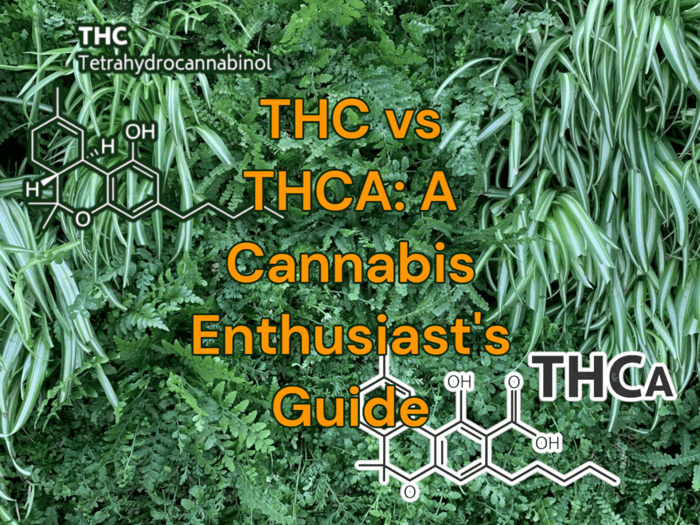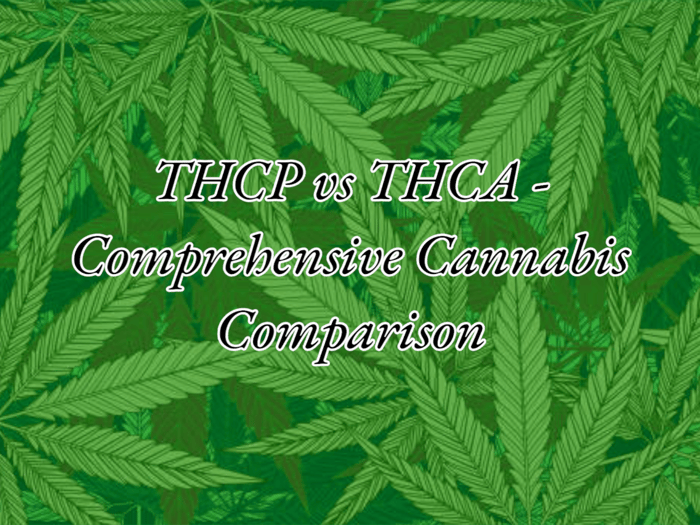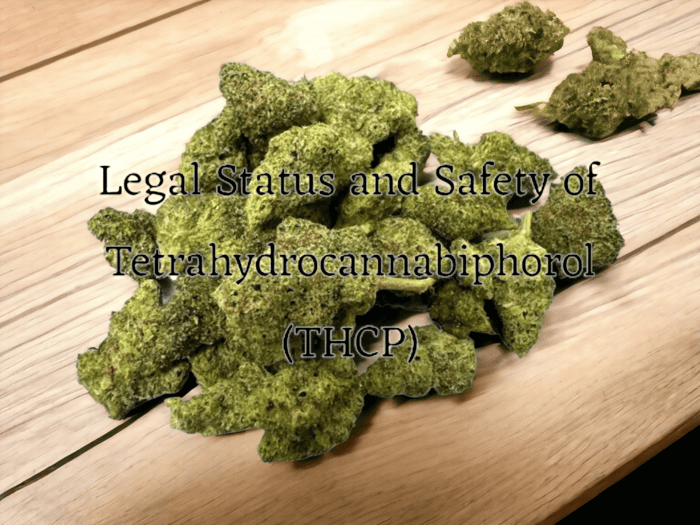
The Wellness Warrior's Handbook to Hexahydrocannabinol (HHC): Benefits and Uses Compared
Hexahydrocannabinol (HHC) is quietly revolutionizing wellness.
A Brief on Hexahydrocannabinol's Background
Even though research into cannabinoids began in the 1940s, it took many decades before scientists specifically identified Hexahydrocannabinol. Discovered insignificantly among a complex family of cannabinoids, HHC initially slipped under the radar.
The Initial Discovery of HHC
Hexahydrocannabinol was first found as a minor cannabinoid, appearing less frequently in cannabis plants compared to its counterparts like THC and CBD. Because of its lesser presence in traditional marijuana strains, HHC was not immediately recognized for its potential benefits.
The Resurgence of Interest in HHC
Recent attention turned towards HHC as scientists, and wellness advocates began to understand its unique properties. While there is still much to uncover, early research suggests that HHC could provide similar benefits as other better-known cannabinoids, but with fewer psychoactive effects.
A Preview of Hexahydrocannabinol's Influence and Use
This piece will illuminate the compelling journey of HHC, from its humble discovery to its emerging role in today's wellness landscape. We will objectively examine HHC's potential benefits and uses, anchoring our findings in the latest scientific research.
Understanding Hexahydrocannabinol (HHC)
Hexahydrocannabinol, commonly known as HHC, is a novel cannabinoid compound gaining traction for its therapeutic potential. This section delves into the intricacies of the chemical structure and the extraction process of HHC.
Chemical Structure of HHC
Understanding the chemical structure of HHC is key to comprehending its functions and value in the cannabinoid family.
Comparing HHC to Other Cannabinoids
Like other members of the cannabinoid family, HHC is a complex compound part of the cannabis plant matrix. Despite differing in molecular structure, HHC shares some likeness with deltatetrahydrocannabinol (Δ9THC), the compound predominantly associated with the psychoactive properties of cannabis. HHC is essentially a hydrogenated version of Δ9THC, meaning it has additional hydrogen atoms compared to its counterpart.
Unique Characteristics of HHC's Structure
The additional hydrogenation process experienced by HHC impacts its functionality. Although the data on HHC are not as extensive as those on Δ9THC or cannabidiol (CBD), preliminary findings suggest that HHC has a significantly reduced psychoactive potency in comparison to Δ9THC. Although the reasons are not fully understood, the structural differences elicited by hydrogenation may contribute to these altered effects.
Production and Extraction of HHC
The production and extraction process of HHC is distinct. It involves a multi-step chemical reaction that aims to yield a product rich in HHC.
Extracting HHC
HHC's extraction procedure follows a series of steps. The process generally begins with an extract rich in Δ9THC, followed by hydrogenation under high pressure and temperature conditions. This process is typically facilitated by using a metal catalyst. The hydrogenation process converts Δ9THC into HHC, which can then be isolated from the mixture to yield a pure product.
Factors Influencing HHC Production
Certain factors can dramatically influence the efficiency and effectiveness of HHC production. These factors include the quality of the starting cannabis material, the type and amount of metal catalyst used in the reaction, and the precise conditions of pressure and temperature under which the reaction is performed.
Understanding the Benefits of HHC
The study of Hexahydrocannabinol or HHC brings forth a wide range of potential benefits. Its therapeutic properties and mental health impacts have been intensely scrutinized to untangle its complexities, which still remain obscured. Let's closer inspect this cannabinoid to glean insights into its potential to enhance wellness.
Potential Therapeutic Properties of HHC
Hexahydrocannabinol, a relatively unexplored cannabinoid, exhibits a combination of distinctive therapeutic properties. Herein, we will look into three key areas where HHC extends potential benefits.
Anti-Inflammatory Effects of HHC
Like most cannabinoids, HHC also exhibits anti-inflammatory effects. Although exact pathways through which HHC exerts this influence remain a work in progress, its reported role in minimizing inflammatory responses validates useful therapeutic prospects.
Potential Analgesic Effects of HHC
Their efficacy as analgesics is commonly touted for most cannabinoids, and HHC is no exception. Through the modulation of certain pain pathways, HHC may help provide relief from pain, thus improving quality of life among patients with chronic pain
Examining Potential Neuroprotective Effects
Another possible advantage of HHC relates to its potential neuroprotective effects. This implicates a role for HHC in disorders such as Alzheimer's, Parkinson's, and other neurodegenerative diseases, wherein neuroprotection is paramount.
Role of HHC in Mental Health
Delving into the sphere of mental health, HHC might provide relief for certain conditions. Specific focus areas include mood disorders, PTSD, and insomnia.
Effects on Anxiety and Mood Disorders
Anxiety and mood disorders have been considered as potential targets for cannabinoid therapies. Positive alterations in mood and reductions in anxiety levels have been reported with HHC use. These reported effects strengthen the proposition of HHC as a potential adjunct in treatments
Potential benefits for PTSD and Insomnia
Post Traumatic Stress Disorder (PTSD) and Insomnia are severe conditions that might be favorably influenced by HHC. As per preliminary studies, HHC has demonstrated effects that might ameliorate symptoms associated with these disorders, pointing towards potential therapeutic applications for the same.
Comparing Hexahydrocannabinol with other Cannabinoids
The cannabinoid family is rich in diversity, with each member carrying its unique set of features that distinguish it from the others. This section presents a comparison of Hexahydrocannabinol (HHC) with two of the most well-studied cannabinoids: Tetrahydrocannabinol (THC) and Cannabidiol (CBD).
Comparing HHC and THC
Similarities and Differences in Chemical Structure
Both HHC and THC are derivatives of cannabigerol (CBG), a parent molecule from which most other cannabinoids are synthesized. However, their molecular structures diverge because of the different compositions and arrangements of atoms. THC is a cyclic compound, whereas HHC is categorized as an acyclic or open-chain compound. Structurally, THC contains a closed ring, while HHC has an open-chain structure—a key difference that impacts how these two cannabinoids interact with the body's cannabinoid receptors.
Similarities and Differences in Effects
Although both HHC and THC can produce psychoactive effects, their efficacy and intensity vary. THC is known for its strong psychoactive impact, often described as a "high."
On the other hand, while HHC does exhibit psychoactive properties, its effects are reported to be milder than those of THC. This distinction is believed to be due to the differing molecular structures and how each compound interacts with the body's endocannabinoid system.
Comparing HHC and CBD
Similarities and Differences in Chemical Structure
HHC and CBD, like all cannabinoids, originate from the CBG molecule, setting up a common initial path. Structurally, however, HHC and CBD are distinct. CBD is a cyclic compound, similar to THC, while HHC maintains its acyclic structure. Consequently, the open-chain structure of HHC gives it different properties and effects compared to the cyclic structure of CBD.
Similarities and Differences in Effects
In terms of effects, CBD is non-psychoactive, meaning it does not produce the "high" associated with THC. Its primary role is believed to involve the regulation of physiological functions, contributing to its potential therapeutic properties.
Unlike CBD, HHC does present psychoactive properties, albeit milder than THC's. HHC's psychoactive effects, coupled with its unique chemical structure, contribute to its potential use-case scenarios, distinct from both THC and CBD.
Finding and Sourcing Hexahydrocannabinol (HHC)
Identifying where to source Hexahydrocannabinol (HHC) supports a better understanding of its benefits and potential applications. Availability and source avenues for this cannabinoid range from natural occurrences to engineered scientific and commercial adaptations.
HHC in Natural Sources
HHC is a less common cannabinoid and its natural occurrence in cannabis plants differs in comparison to its highly distinct counterparts, Delta-9 tetrahydrocannabinol (THC) and Cannabidiol (CBD).
Type of Cannabis Plant with HHC
Considering the extensive variety present in the cannabis genus, the specific strains or types that naturally produce HHC are not yet identified definitively. Moreover, given the latest scientific and technological advancements, researchers are developing innovative approaches like bioengineering to stimulate HHC production in cannabis plants. This approach supports increasing the cannabinoid's availability to a larger market.
Geographical Regions Known for HHC Rich Cannabis
The geographical regions rendering HHC-rich cannabis are yet to be accurately pinpointed primarily due to the limited information available on natural sources of HHC. It focuses on the importance of ongoing research to enhance knowledge around this cannabis component and identify regions globally where its production could be rich.
HHC in Scientific and Commercial Products
With continued research and progress, HHC is making paths into the realms of both scientific study and commercial product availability.
Available Consumer Products Containing HHC
Despite its scarcity in comparison to well-known cannabinoids, consumer products containing HHC have started to emerge. Ranging from wellness creams to vape cartridges, multiple commercial products carrying HHC are now being manufactured and supplied. These products offer consumers additional choice while evaluating cannabinoid-based wellness options.
Scientific and Medical Use of HHC
The medical and scientific use of HHC is under steady exploration. Early findings suggest potential therapeutic applications, emphasizing its importance in various fields of scientific inquiry. Thorough investigation into the properties of HHC can propel its inclusion in focused medical research, providing a broader scope for cannabinoid planning.
Reflecting on the Significance of Hexahydrocannabinol
Hexahydrocannabinol (HHC), as a key player in the collection of cannabinoids, carries immense potential and value in the field of wellness and potential therapeutic treatments. This compound, while structurally akin to Tetrahydrocannabinol (THC), possesses its unique array of benefits.
Revisiting the Benefits and Comparisons
In recapitulation, HHC stands out for its lessened psychological impact compared to THC, offering a more balanced experience and only minor psychoactive effects. It has the potential to soothe anxiety and stress, its anti-inflammatory properties providing relief in chronic pain cases and its neuroprotective potentials broadening the scope for treating neurodegenerative disorders.
When drawing a comparison with other cannabinoids, it is apparent HHC offers a unique blend of benefits that makes it a compelling proposition. For instance, its non-intense psychoactivity presents an attractive alternative for those adverse to the potent mind-altering effects of THC. Conversely, compared to Cannabidiol (CBD), HHC can offer a marginal 'high', a trait absent in CBD, thus filling a niche gap for users desiring a mild euphoric experience.
Anticipating Future Prospects of HHC
The current research and understanding around HHC provides exciting implications for its future role in both medicinal and recreational spheres. Although still in its formative stages, evidence regarding its effectiveness in managing anxiety, pain, and neuroprotective needs signal a promising future.
On the recreational front, HHC may cater to a unique demographic seeking a 'light' high without the overwhelming psychoactive experiences associated with potent cannabinoids. As such, HHC’s potential in the wellness community extends beyond the conventional, delving into the realm of recreational cannabinoids, without the full intensity associated with such substances.
Given the evolving nature of cannabinoid research and changes in societal attitudes towards such substances, it is important to continue monitoring developments in this field. Only through further investigation can the full scope and potential of HHC and other cannabinoids be well understood and appreciated.
Disclaimer
The products discussed here and any claims or suggestions made have not been evaluated by the Food and Drug Administration (FDA). This content is not intended to diagnose, treat, cure, or prevent any disease.
The information on this website is provided for general informational purposes only and should not be relied on as the sole basis for making decisions – we encourage consulting primary, qualified, more complete, or professional sources. Any reliance on the material on this site is at your own risk.
Information shared on this site may be updated at any time and may include information or data that are no longer current, accurate, or complete and is provided for your reference only. We are not obligated to update published content, and it is the reader’s responsibility to monitor any changes and to consult with primary, qualified, more complete, or professional sources.
We make no guarantees regarding the completeness, accuracy, or reliability of the information provided, nor do we warrant that any products, services, or materials offered will meet individual expectations. Use of this site and its content is at your own discretion and risk.




